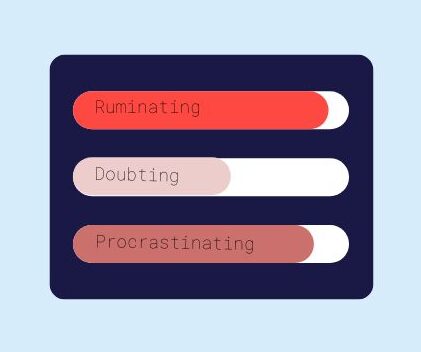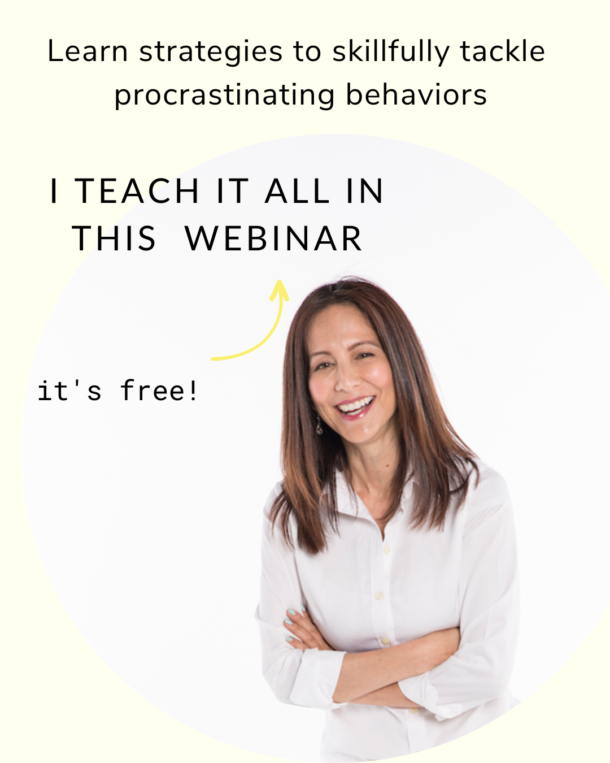
You love your significant other and your pets so much that your feel your life would be over if you lost them. Imagine trying to prevent this with every waking moment of your life.
Your life wasn’t always like this.
One day you had the thought: “What if my house burns down because of an electrical fire” and you started unplugging all of your devices before leaving. A few weeks later you became convinced your cat was going to chew on any wiring you couldn’t unplug so you started locking him away in an empty room while you leave for the day. You then read an article stating that most fires in the home are caused by leaving a burner on, so the oven gets added to your checklist.
Before you know it, you now have a long list of checks that must be done before you leave the apartment. You perform these checks multiple times before leaving, your panic increasing as you come closer to your final check. On your final round you feel everyone’s safety depends on you doing this without missing anything!
You finally get out the door and lock it. Now it’s time to make sure it is actually locked. You push on the door while turning the knob once… twice… three times… four times… five times… six times… seven times… eight times… nine times. Each time you feel the solid thump of the door hitting the lock; on this ninth time you feel satisfied that it is actually locked.
Later, in an important meeting a thought creeps into your head, “Was the oven off? I think I checked it, but I’m not sure. What if I hit the burner when walking by?” Images of your house burning down and your beloved pets dying floods your mind.
You try to focus on what your colleague is saying, but your mind is elsewhere, trying to remember if it is really off. You leave the meeting to go to the bathroom and look at your phone. Good thing you always take a picture of the stove before leaving.
You should think of a way to make sure you know if you’ve turned off the stove. What if you touch it every time before you leave? You decide you now need to touch the stove before leaving. If you are out and your hands aren’t burned you can know for certain that everyone is safe.
What would they do without you? No one knows how to care for them the way that you do. What if you weren’t there to make sure they are kept safe? You start to worry what would happen to them if you were to suddenly die.
You become extremely concerned about contracting any sort of illness and begin avoiding touching anything others may have touched like doorknobs and elevator buttons. Whenever you feel like you may have touched any germs or unsanitary surfaces your brain screams, “TOXIC WASTE!” You wash your hands once to get off the unclean, twice for good measure, and a third time just to make sure.
Sickness isn’t the only thing you are worried about taking you away from your family. We live in a dangerous world where people are randomly attacked every day. You hear about a mass shooting tragedy and launch into a litany of thoughts about how to keep yourself alive and conduct internet research centered around how people survive these tragedies; you spend hours making a plan to ensure your survival.
It’s a hard job making sure you and your loved ones are kept safe. Your checklist has grown and your life has become more and more focused on preventing harm. You don’t leave the house unless absolutely necessary and you spend most of your waking hours researching whether you are dying on Web MD or figuring out ways to survive unexpected situations. You decide to see a therapist to claim some of your life back.
You meet with a clinician who suggests that your mannerisms seem like they are being driven by obsessive-compulsive disorder (OCD) and the treatment for this would be “exposure with response prevention” (ERP); this would include stopping yourself from checking, washing, and figuring out…
All of the precautions you have been taking worked so far. Stepping back from all of your checklists doesn’t seem like an option, why would you mess with something that has been working? You think that If anything were to happen after you prevent yourself from doing your precautions you would feel guilty and responsible.
However, your life is now so constricted and ruled by the measures you take to prevent harm that you need something to change.
You realize that you have a difficult road ahead of you and are in a moment of choice: Do I continue to be driven by OCD, using my checklists, and adding to them? Or do I want to try something that will bring up discomfort and uncomfortable emotions, such as feeling like I am not doing my best to care for my loved ones, but something that will move me towards reducing the time I spend on my precautions and allow me to engage with the things that truly matter to me in my life?
The choice is up to you.
If you choose to continue with treatment your first step will be to become familiar with the obsessions and compulsions. Your obsessions are wondering if there is a fire or if the oven is on, thinking the door isn’t locked, focusing on any germs or unclean feeling, and needing to know how to stay alive.
Your compulsions are checking your oven and taking picture of it before leaving, checking that your door is locked multiple times, washing your hands, and figuring out how to survive through internet research.
Before you can start any exposures to the feelings brought up when preventing your compulsions you also need to be aware of any “safety behaviors,” which are things you might do to make yourself feel better or more comfortable.
Becoming aware of these safety behaviors and what you might do to avoid discomfort during exposures will be important to ensure you refrain from doing these things and unintentionally minimizing the effectiveness of exposures.
This treatment is hard work, but your current life is already hard; going through this difficult process can help to reduce your time spent engaging in your compulsions and give you back your life.







